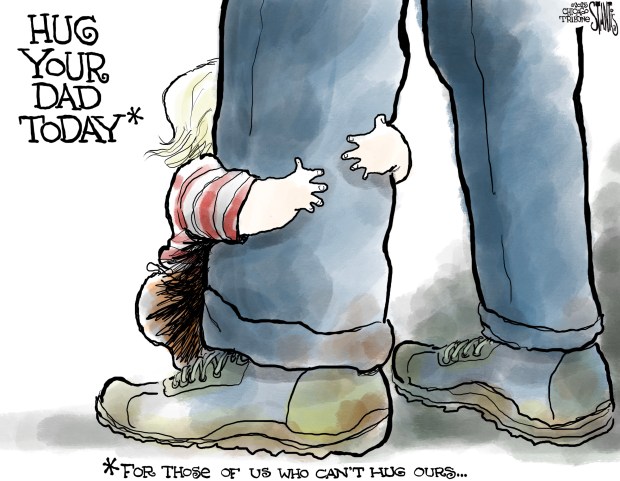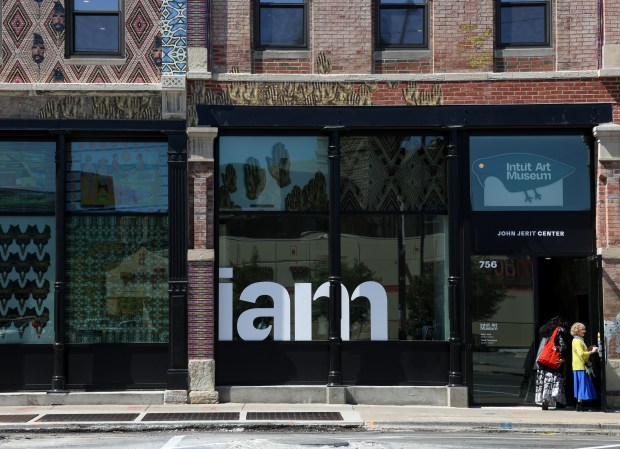Whatever happened to SAFE-T Act proponents’ promise to protect witnesses and victims?
The enactment of the act has only added to the urgency, given the elimination of cash bail, to undertake measures that will protect them. The city of Chicago can’t wait for the state to act and needs to move beyond Mayor Brandon Johnson’s rhetoric about helping crime victims through better coordination of support from city agencies and take substantive steps to aggressively protect witnesses and victims.
Central to the perniciously high number of shootings in Chicago is the reluctance of people to report to the Chicago Police Department the identities of shooters and their associates. We can’t understate the degree to which the lack of a comprehensive witness protection program is undermining the ability of police to make arrests.
Chicago led the nation in 2023 for mass shootings with 34 incidents, and almost 10% of all mass shootings in the past 11 years have happened in Illinois. Yet, few arrests are made: Out of 212 mass shootings in Chicago from 2016 to 2021, authorities achieved only two convictions, a Sun-Times analysis shows.
Witnesses and victims are afraid to cooperate because police can’t protect them from shooters in their neighborhoods. It’s going to get worse with alternative detention programs. Offenders’ mere presence in the community can be threatening. The SAFE-T Act will make witnesses and victims even more reluctant to cooperate with the police.
The SAFE-T Act should be amended to mandate tough action for anyone who attacks, threatens or even contacts a witness or victim or threatens a police officer for that matter. This means imposing mandatory prison sentences. These actions would go a long way toward making the SAFE-T Act safe. The legislature also should fully fund its SAFE-T Act mandates and replace local monies lost from the elimination of bail that had been used for local restitution and witness protection programs. The protection of witnesses and victims must be a priority.
That said, Chicago can’t wait for the legislature to act responsibly. A city witness protection program directed by the Police Department’s bureau of detectives could protect truly vulnerable witnesses and victims who would proactively work with authorities to help identify and prosecute those charged violent crimes.
Retired police officers with investigatory experience could be invited to return to protect and support witnesses. They could escort and monitor witnesses and provide a faster response time to witness intimidation. City funding could come from asset forfeitures. Additional funding could be generated from enactment and enforcement of a much needed nuisance ordinance directing police to make arrests and financially hold those accountable who loot, riot, damage property, engage in flash mobs or incite civil unrest.
Such an ordinance could include a heavy fine, $2,000 for example, per handgun that is unregistered, stolen or defaced or for people in possession of a handgun without proper licenses. The state’s attorney’s office routinely doesn’t pursue additional misdemeanor charges in the case of felony arrests. The office frequently doesn’t seek weapons charges with seizures of illegal firearms. A fine by issuance of a municipal citation, or ANOV, would make it a separate matter and ensure financial consequences.
The city must also enact its own public safety ordinance. Such an ordinance could provide for up to 364 days of jail time and include fines and terms of probation for individuals who threaten police, intimidate witnesses, engage in hate crimes, commit more serious weapons violations, are in possession of a stolen vehicle, etc. The city’s home rule powers mean the state code and state’s attorney are not the only source of authority for protecting public safety, providing the city the power to take action to protect its residents.
Police can’t protect people too afraid to even talk to them. Police need the tools to secure the trust and cooperation in the community needed to arrest and keep violent offenders off the streets.
You can’t prosecute if you don’t arrest, and making arrests requires that you protect witnesses and victims.
Paul Vallas is an adviser for the Illinois Policy Institute. He ran for Chicago mayor in 2023 and in 2019 and was previously budget director for the city and CEO of Chicago Public Schools.
Submit a letter, of no more than 400 words, to the editor here or email letters@chicagotribune.com.




